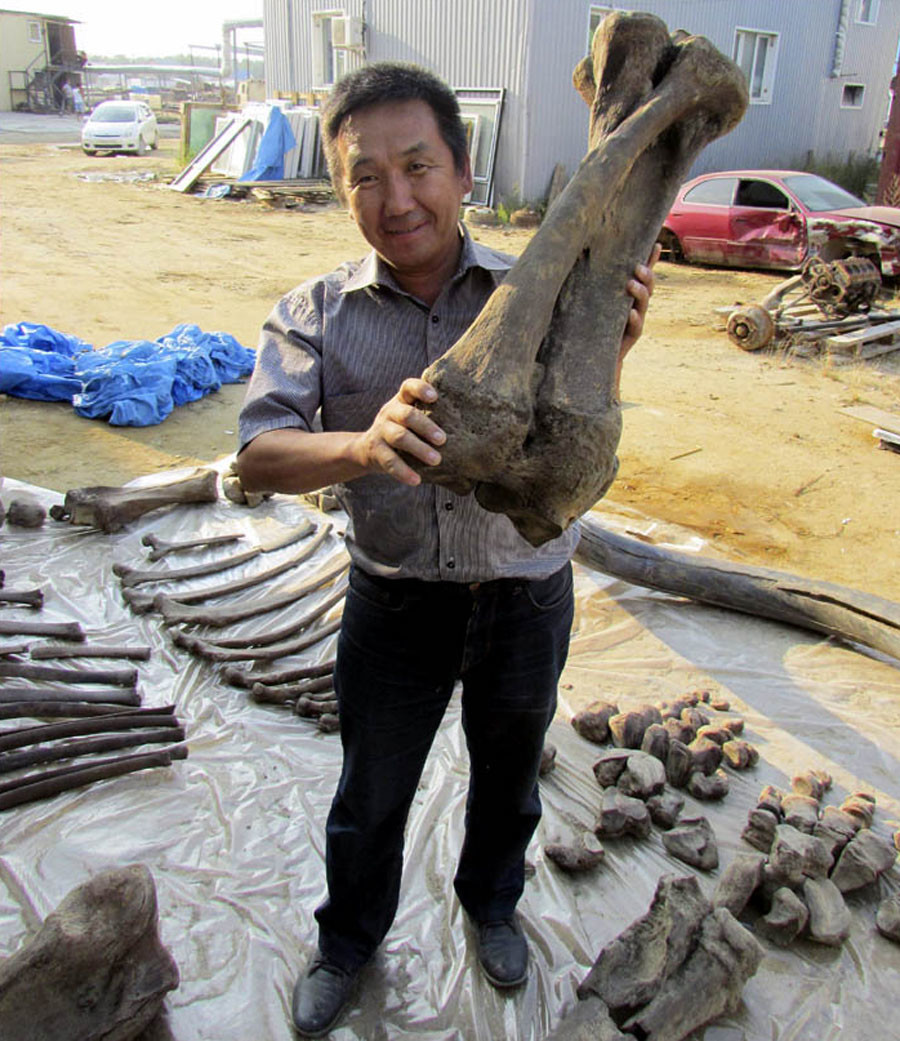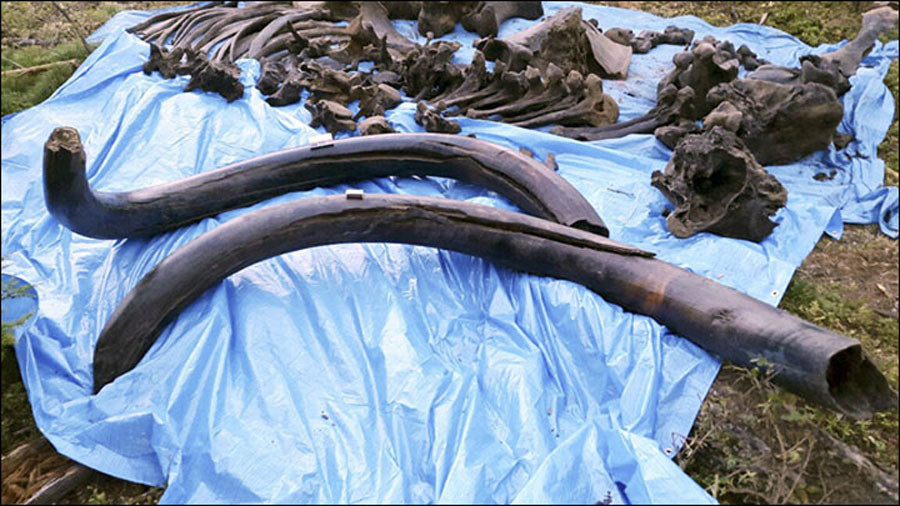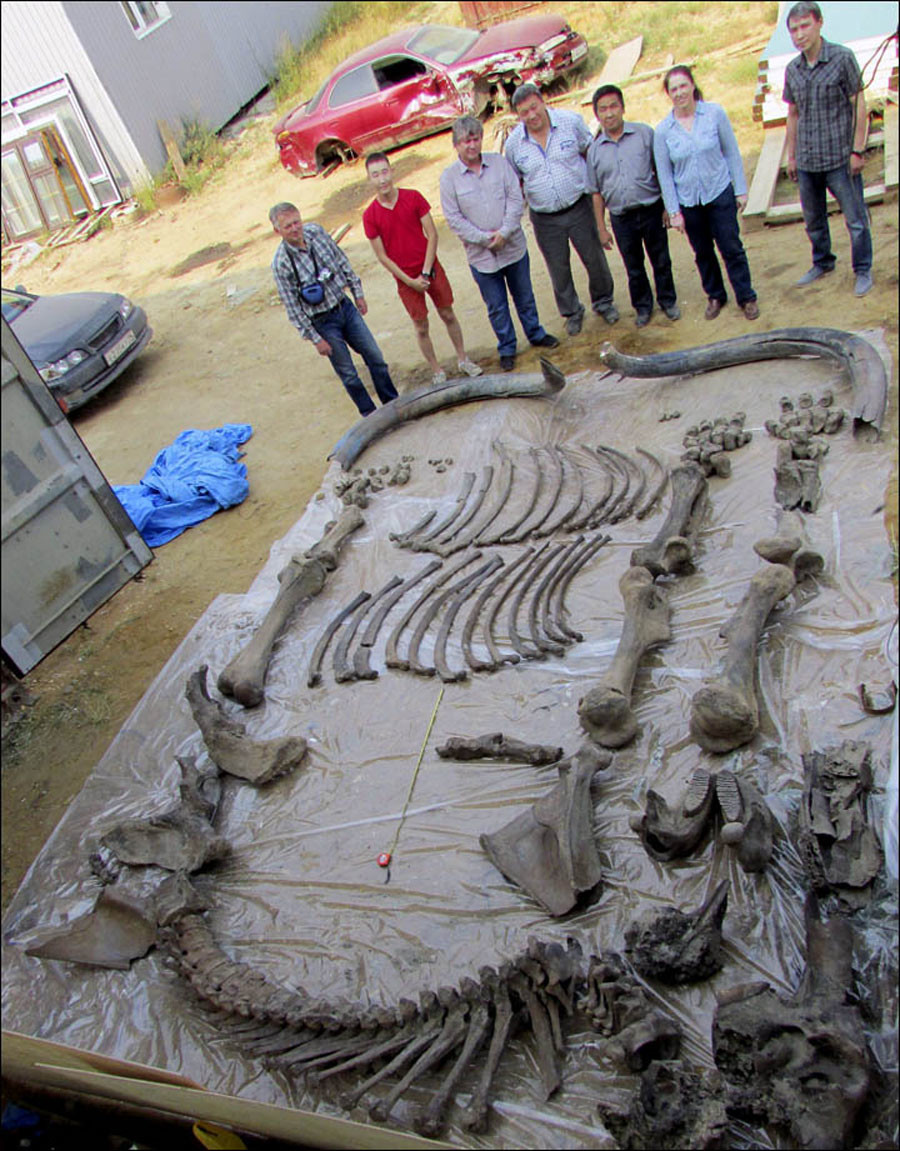126,000-year-old pre-woolly mammoth skeleton found in Siberia (PHOTOS)

A unique, 90-percent intact steppe mammoth skeleton dating back 126,000 years has been discovered in northern Russia. The find could mean the species existed for much longer than previously thought
It is the first steppe mammoth to be found in Yakutia in Northern Russia. It’s in better condition than the five other skeletons discovered in other parts of Russia.
Although scientists estimated the animal’s height as a little below average at just over 3 meters, the male specimen had giant tusks — each 2.5 meters long and weighing 75 kilos.
“The skeleton was discovered in an anatomical position and was extracted mostly intact. Even the smaller bones of the feet were complete. It lacked the right hind leg. Evidently it had been torn off during the mammoth’s lifetime,” says Yevgeny Mashchenko, senior research scientist at the Paleontological Institute in Moscow.
Locals found the remains of the animal on the bank of the river Suola in the Sakha Republic, Russia’s coldest region.
As the bank thaws it erodes and yields a mix of sand and ice, where many specimens have been discovered over the years. This find is unique, however.
It is believed that steppe mammoths lived in Siberia during the Pleistocene era some 600,000-370,000 years ago and were ancestors of the more commonly found woolly mammoths. But this skeleton appears much newer at about 126,000 years old.
“It is thought that during the mid-Pleistocene period, the climate in Yakutia was relatively warm. However this skeleton was buried during permafrost. Apart from that, we discovered traces of animals near the skeleton that were previously thought to have lived in the area much later. How does that go together with a warm climate?” asks Albert Protopopov from the Sakha Academy of Science.
“Next year we plan to start larger scale research in the area,” he said.
In comparison to the more common woolly mammoth, the steppe mammoth was taller and the length of its body shorter. On average they were 4 meters tall and weighed up to 10 tons.
Earlier this year scientists found the remains of a steppe mammoth in the Perm region. They have only managed to pull out 50 bones so far due to difficult conditions on the site. The team hopes to resume the dig next summer.
Other cases of steppe mammoth skeletons discovered in good condition include one in Serbia, where a female specimen was found with 90 percent of its bones, and in England, where an 85-percent complete male mammoth skeleton was found.
Политика конфиденциальности | Правила пользования сайтом










